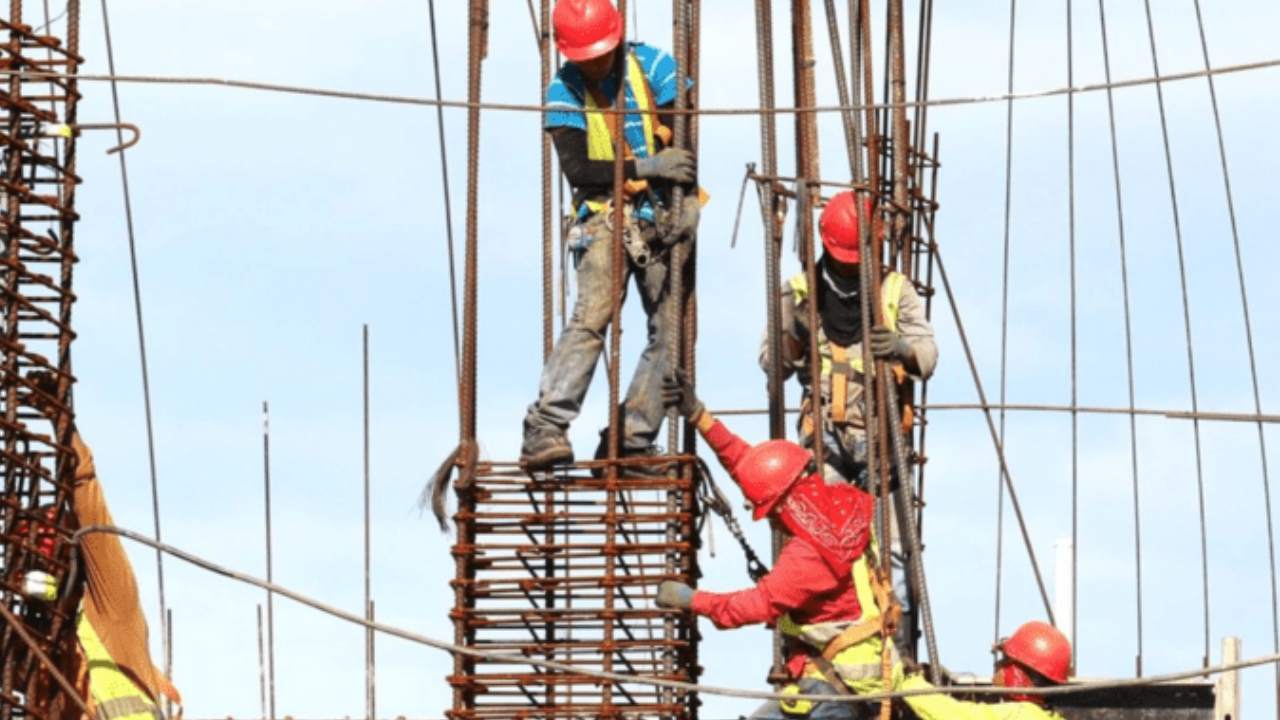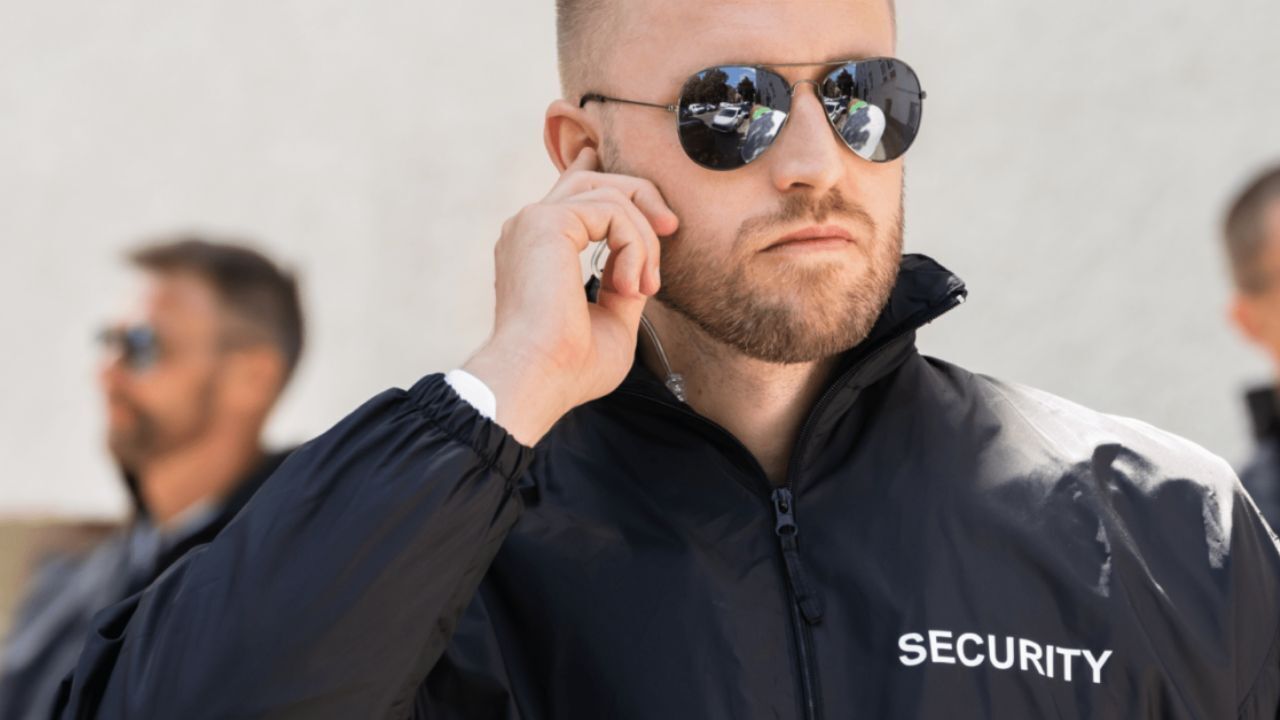What transforms a young doorman into the managing director of one of London’s leading event security firms? Daniel Blackwood’s 25-year journey from retail security to protecting tens of thousands at major festivals reveals the gritty realities and opportunities in event security.
His story is a masterclass in resilience, growth, and what it really takes to succeed in today’s private security industry. Let’s take a closer look at how it all began.
From Humble Beginnings to Industry Leadership
Daniel’s entry into security wasn’t part of some grand master plan—it was a practical decision that would eventually reshape his entire life. His honest reflections on those early days reveal both the challenges and unexpected opportunities that await those willing to start from the bottom.
What first drew you to security work?
“I wanted to join the police force. Wasn’t too sure how that was gonna go. A lot of my friends were in security at the time,” Daniel reflects. Starting at 18 in retail security across London’s toughest areas, he transitioned to club work before launching his first business at 21.
The entrepreneurial journey wasn’t smooth: “I’ve won and lost many times in business. It’s not easy, especially when I was younger, you know, you get money, you don’t know what to do with it.” Those early failures taught valuable lessons about sustainable growth.
ResponSec‘s success came through specialisation and reputation-building, focusing on specific event types rather than competing on price.
The Art of Event Security Management
From Humble Beginnings to Industry Leadership
Daniel’s entry into security wasn’t part of some grand master plan—it was a practical decision that would eventually reshape his entire life. His honest reflections on those early days reveal both the challenges and unexpected opportunities that await those willing to start from the bottom.
What first drew you to security work?
“I wanted to join the police force. Wasn’t too sure how that was gonna go. A lot of my friends were in security at the time,” Daniel reflects. Starting at 18 in retail security across London’s toughest areas, he transitioned to club work before launching his first business at 21.
The entrepreneurial journey wasn’t smooth: “I’ve won and lost many times in business. It’s not easy, especially when I was younger, you know, you get money, you don’t know what to do with it.” Those early failures taught valuable lessons about sustainable growth.
ResponSec‘s success came through specialisation and reputation-building, focusing on specific event types rather than competing on price.
The Art of Event Security Management
The complexity of event security becomes apparent when Daniel explains the stark differences between traditional door supervisor work and festival operations. The scale, planning, and coordination required would surprise most people who simply see security staff on the day of an event.
What makes event security different from traditional door work?
“I think that events involve a lot more,” Daniel explains. “With a pub, you need two doormen on a Friday and Saturday night. With an event, there’s a lot more that goes into it.”
The planning timeline is staggering—summer festivals are discussed the previous year, whilst New Year’s Eve preparations begin in February. “Sometimes we’re planning them from six to eight months in advance because there’s so much involved.”
Despite running a major operation, Daniel maintains a hands-on approach that keeps him connected to the realities his team faces daily. This leadership style has become central to ResponSec’s culture and success.
You still work on the ground yourself. Why is that important?
“I love it. I’m not a suit guy. I’m a t-shirt, combats and boots guy,” Daniel says. “I love getting out there, putting my earpiece on, talking to the staff.”
This hands-on approach maintains credibility with teams who respect seeing management share their challenges.
Recommended Reading: How To Work In Event Security
Reputation as Currency
In an industry where word-of-mouth recommendations can make or break a business, Daniel has built ResponSec’s success on something more valuable than any marketing campaign—an unshakeable reputation for reliability and professionalism.
“Your reputation in this business is everything. I’ve been quite lucky to work on some of the best events in the UK and some stuff worldwide,” Daniel emphasises.
This reputation-based model means ResponSec rarely needs traditional sales efforts. “A lot of work comes to us. People give us a call and say, oh, Dan, can you look at this job for us?”
The company can now be selective: “We’re at a place where we can decide what we wanna do. Whereas before you’d probably take everything and maybe regret some of them.”
The Weight of Responsibility
The gravity of crowd management becomes clear when Daniel discusses the life-or-death decisions that security professionals face. His experiences reveal the immense pressure and split-second judgment calls that define this profession.
What’s the most challenging aspect of crowd management?
“You have to remember that people’s lives are in your hands. People don’t actually understand that part of it,” Daniel states.
This responsibility peaks during “show stops”—when performances halt due to crowd issues or emergencies. “I’ve been in quite a few show stops. They’re very tense. It’s a big decision to call.”
His most dramatic example occurred internationally, where “we had to stop the show because the crowd got into the festival. They took over the police who were meant to be doing the security and left.”
The unpredictability adds complexity: “We cannot control the crowd’s behaviour. Every crowd’s different. We can help control it, but we cannot fully control it.”
Post-Astroworld, the industry has intensified its safety focus. “A lot has changed since Astroworld. People are more and more watching crowd safety.”

Training and Professional Development
The evolution of security officer training reflects the industry’s growing sophistication and the recognition that proper preparation can mean the difference between a successful event and a tragedy. Daniel’s approach to staff development goes far beyond basic compliance requirements.
What training do you consider essential?
“Training is key to every event and every security officer’s career,” Daniel emphasises. Beyond basic SIA training, he highlights specialised qualifications: “For stadiums, you do an NVQ level 2 in spectator safety.”
Counter-terrorism training has become essential: “ACT is obviously crucial—anything to do around counter-terrorism, how we can spot hostile reconnaissance.” Daniel regularly briefs staff that a terror attack is due in this country. We just don’t know when.
He actively promotes from within, developing supervisors and helping staff progress to specialist response teams.
Career Opportunities and Future Evolution
For those considering a career change or looking to advance in security, Daniel’s insights reveal an industry offering genuine progression opportunities and competitive rewards. The future of event security promises even more exciting developments as technology and legislation reshape the landscape.
What would you tell someone considering event security as a career?
“I’d say go for it. If you’ve got an SIA licence, especially a door supervisor licence, and you’re working in corporate or retail, use your days off and do events,” Daniel advises.
The industry offers flexibility, competitive pay, and unique perks: “I’ve got guys that work in a football stadium, who get to watch Premier League football every week for free, sitting pitch side, and getting paid for it.”
Technology is reshaping the industry landscape, offering new tools for crowd management whilst creating fresh career opportunities for those willing to adapt and learn.
Where do you see the industry heading?
Technology is reshaping operations with drones providing aerial crowd monitoring: “There’s a lot more use of drones to monitor crowd movement. It’s really great to have an eye in the sky.”
However, human expertise remains irreplaceable: “The basic technology has to be supported by boots on the ground.”
Martyn’s Law will create new requirements whilst the industry’s growing sophistication attracts professionals from diverse backgrounds, moving beyond old “bouncer” stereotypes.
Recommended Reading: Do You Need An SIA Licence For Working At Events?
The Real Reward: Making a Difference
When asked about what truly motivates him after 25 years in the industry, Daniel’s response reveals the deeper satisfaction that comes from this demanding profession. It’s not just about the business success or financial rewards—it’s about the fundamental human impact of the work.
What’s the most rewarding part of working in event security?
“For me, everyone getting home safely. It’s really rewarding. And seeing people smiling and enjoying themselves, coming out, enjoying the festival,” Daniel concludes.
Daniel Blackwood’s journey from doorman to industry leader illustrates the extraordinary opportunities in event security for those willing to invest in professional development. His success stems from adapting to challenges, learning from failures, and maintaining an unwavering commitment to safety.
Watch the full episode for a more in-depth coverage of his experiences, career progression, and insights. You can also stream it on Apple Podcasts, Spotify, and Amazon Music.

Start Your Journey in Event Security
The security industry has evolved into a sophisticated profession demanding continuous learning and genuine care for public safety. For those ready to embrace these challenges, it offers the satisfaction of enabling millions to enjoy live events safely.
Ready to explore event security opportunities? Start your journey with our comprehensive SIA training courses and discover this dynamic industry.












